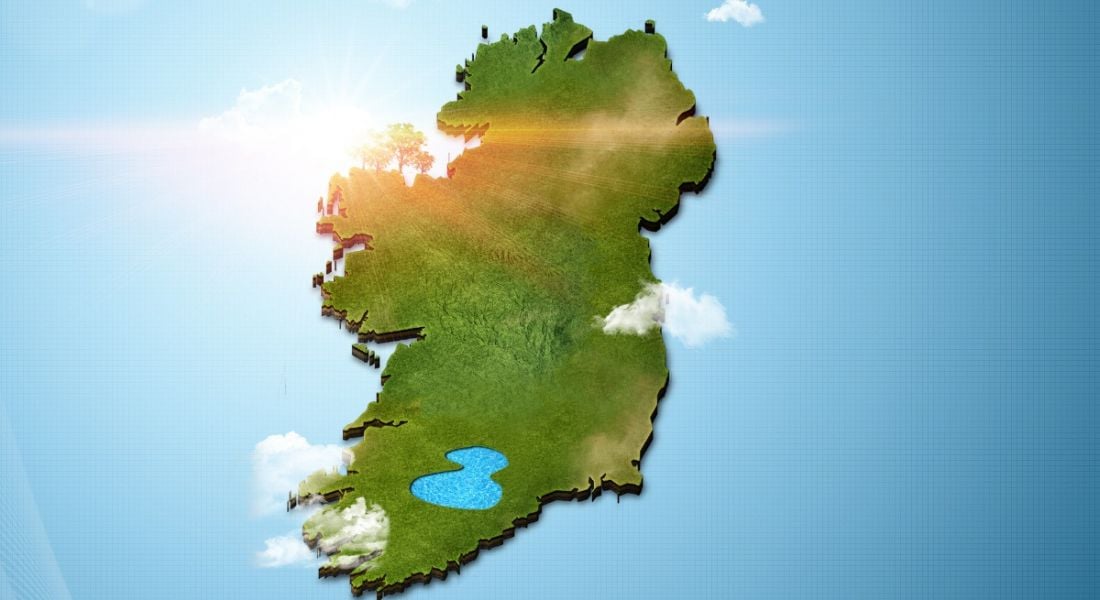Groups like Green Tech Skillnet are helping Irish workers boost their green tech skills, but we need more buy-in from business.
Is the role that the sci-tech sector has to play in helping Ireland reach its very ambitious climate targets for 2030 finally being recognised?
There are lots of companies making tech to either mitigate the worst effects of the climate crisis or help others operate more sustainably. But these innovators are perhaps not as widespread as they could or should be.
In fact, a 2022 report by the Economic and Social Research Institute (ESRI) and Skillnet Ireland found that the development of talent and skills was the biggest challenge associated with the implementation of Ireland’s Climate Action Plan.
Ireland needs to work on its green skills programmes in order to equip workers from all sectors with the knowledge to be at the forefront of evolving green tech.
It’s not just Ireland, but other jurisdictions too. Green skills is an area that the EU has said it will focus on as part of its European Year of Skills campaign, which is running throughout 2023.
Another report from last year on green skills among Irish workers by IDA Ireland suggested that Irish workers were broadly in line with EU averages when it came to adoption of green skills. It also said that our share of workers with knowledge relevant to sustainability and climate action was increasing.
Room for improvement
But there is always room for improvement. Further education organisations like FET, Skillnet Ireland and Solas have been making efforts to boost the offerings of green skills programmes in Ireland.
Last year, they hosted a summit dedicated to green skills that explored the role further education could play to help educate people about sustainability in the workplace.
The event promoted ‘green’ career opportunities in areas such as transport, engineering and renewable energy.
Speaking ahead of the summit last year, Fiona Maloney, director of Further Education and Training at the Education and Training Board Ireland (ETBI) said that Irish ETBs are “ideally positioned to meet the skills demands of the green economy”.
“We will work closely with our Solas colleagues to support the implementation of the Green Skills for FET 2021-2030 Roadmap to ensure that our learners and trainees have the appropriate skills to both power Ireland’s green economy and access career opportunities,” she said.
Also speaking at the summit, Minister for Further and Higher Education, Research, Innovation and Science, Simon Harris, TD, claimed that there was no shortage of availability in terms of courses and training opportunities.
Upskilling needs to be fast and flexible
Rather, Harris said, “attracting people to participate” was the challenge. The need for “fast and flexible” upskilling opportunities for people to avail of was an issue he highlighted. He said that the green skills further education summit was actively trying to spread awareness of free courses that can upskill people “in a matter of days for the most part and even online in some cases”.
There are a lot of courses on offer, such as the wind turbine technicians training programme that was set up last year.
Despite Harris’ concerns last year that participation might prove challenging, research has shown that younger workers may be showing the rest of the workforce up when it comes to sustainability skills.
Young workers at the forefront
Deloitte’s global survey of Millennial and Gen Z workers found that the climate crisis was their biggest concern after the cost of living.
Almost half the Gen Z workers (48pc) and Millennial workers (43pc) surveyed said they were actively putting pressure on their employers to take action with regards to the climate crisis.
Less than 20pc of both groups felt that their employers were taking any tangible action. These figures would suggest that young workers are shaming their employers and older counterparts to adopt climate-friendly habits in the workplace.
In this country, a non-profit founded by McKinsey called Generation Ireland provides green and digital skills bootcamps aimed at young people.
The organisation was set up here in 2020, and estimates that by the end of 2023 it will have helped more than 500 graduates to get into careers in the green and tech sectors, including sub-sectors such as retrofitting, IT and cybersecurity.
Just recently, the organisation was one of four to be awarded funding under Rethink Ireland’s €763,000 Urban Uplift Fund, which is for equipping young people with digital and green skills.
The Irish Times reported that the fund in its entirety will support up to 200 young adults. Eco-Unesco, a youth environmental training organisation that runs QQI-accredited sustainability education programmes for youths, also benefitted from the funding.
Things are changing slowly
In terms of support for businesses and people already in employment, Green Tech Skillnet functions as a national network for companies to train employees in any area that pertains to renewables and sustainability. Membership of the network is open to any business in the Republic of Ireland.
If businesses are willing to provide the necessary supports and encouragement for their employees to join upskilling initiatives for green tech skills, perhaps addressing Ireland’s part in the climate crisis might not be left to Gen Z firebrands and the rare green tech start-up.
There are signs that things are beginning to change and the business community here is actively working to reduce its climate impact.
With the help of Skillnet Ireland’s Climate Ready Academy, businesses are being given the skills to do simple things like reduce water consumption, save energy costs and more. The academy was behind the development of some sustainability-focused microcredentials such as the Energy Leaders and the Waste and Circular Economy Leaders programmes. Both are designed to incentivise and support employees in developing practical environmental improvements for their businesses.
10 things you need to know direct to your inbox every weekday. Sign up for the Daily Brief, Silicon Republic’s digest of essential sci-tech news.




